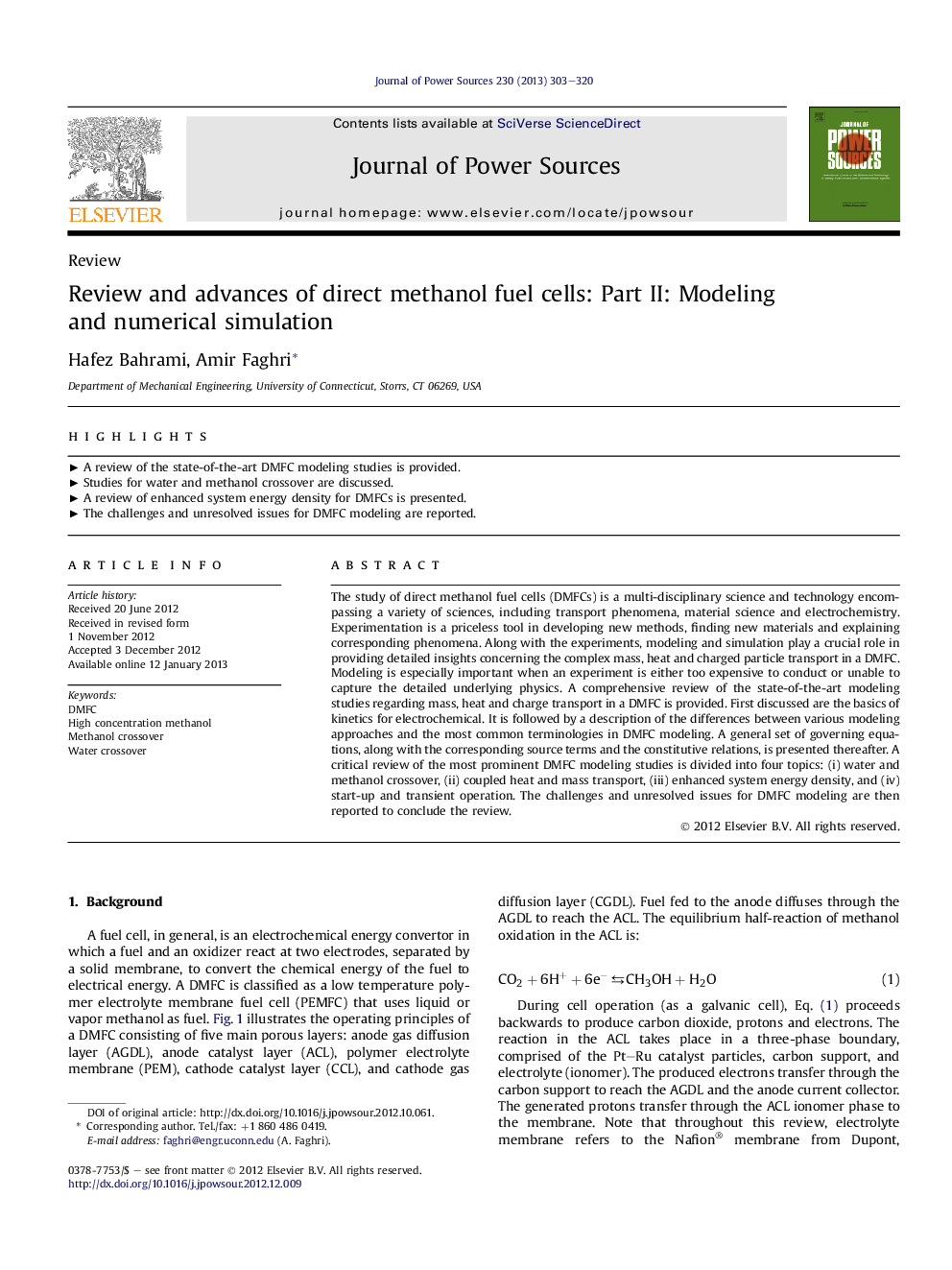| Article ID | Journal | Published Year | Pages | File Type |
|---|---|---|---|---|
| 1288059 | Journal of Power Sources | 2013 | 18 Pages |
The study of direct methanol fuel cells (DMFCs) is a multi-disciplinary science and technology encompassing a variety of sciences, including transport phenomena, material science and electrochemistry. Experimentation is a priceless tool in developing new methods, finding new materials and explaining corresponding phenomena. Along with the experiments, modeling and simulation play a crucial role in providing detailed insights concerning the complex mass, heat and charged particle transport in a DMFC. Modeling is especially important when an experiment is either too expensive to conduct or unable to capture the detailed underlying physics. A comprehensive review of the state-of-the-art modeling studies regarding mass, heat and charge transport in a DMFC is provided. First discussed are the basics of kinetics for electrochemical. It is followed by a description of the differences between various modeling approaches and the most common terminologies in DMFC modeling. A general set of governing equations, along with the corresponding source terms and the constitutive relations, is presented thereafter. A critical review of the most prominent DMFC modeling studies is divided into four topics: (i) water and methanol crossover, (ii) coupled heat and mass transport, (iii) enhanced system energy density, and (iv) start-up and transient operation. The challenges and unresolved issues for DMFC modeling are then reported to conclude the review.
► A review of the state-of-the-art DMFC modeling studies is provided. ► Studies for water and methanol crossover are discussed. ► A review of enhanced system energy density for DMFCs is presented. ► The challenges and unresolved issues for DMFC modeling are reported.
